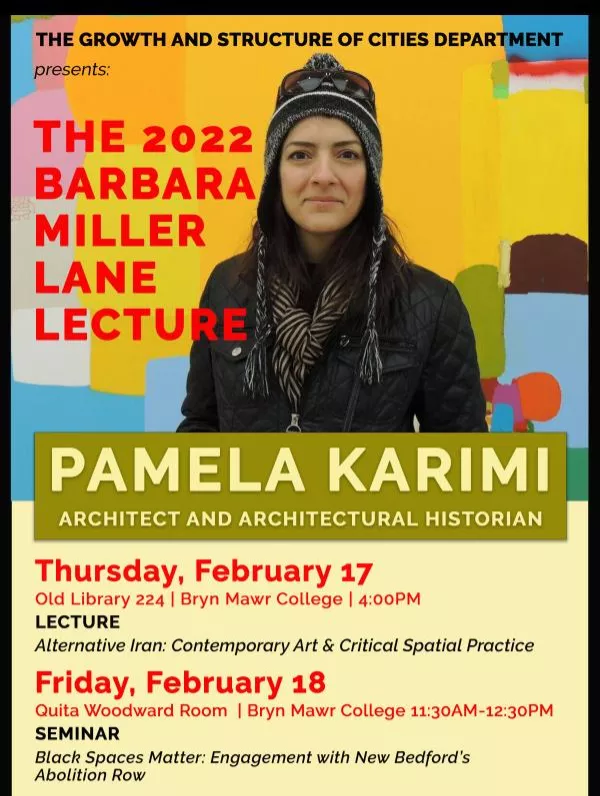Barbara Miller Lane Seminar with Pamela Karimi

Join us for a presentation by Architect and Architectural Historian Pamela Karimi on "Black Spaces Matter: Engagement with New Bedford’s Abolition Row."
This presentation tells the story of a traveling exhibition that celebrates the abolition row near the New Bedford Whaling National Historical Park in the post-industrial city of New Bedford in the south coast of Massachusetts. This neighborhood, which was the home of many African-Americans, white and black abolitionists, and former slaves, provides a lens through which we may study interracial aspects of American cities. Massachusetts abolished slavery in 1783, more than 80 years before the Thirteenth Amendment. However, federal law supporting slave owners superseded this law and there were cases of slaves being “reclaimed” from Massachusetts in the years that followed. A strong network of abolitionists, both black and white, gave New Bedford its claim to fame that no slave was ever forcibly “reclaimed” from it.
New Bedford’s architecture reflects a period of relative racial equality and tolerance in “the city that lit the world” during its whaling boom. This neighborhood includes a mixture of Gothic Revival, Federal, Greek Revival, and early Italianate homes, as well as modest cottages. Important African-American abolitionists, such as Fredrick Douglass and Lewis Temple, resided in these homes.
In recent years, we have seen a growing body of literature on race and architecture. However, this scholarship has focused mostly on the negative side of such built environments, lacking an in-depth exploration of the form and function of interracial neighborhoods. This presentation describes how the Black Spaces Matter exhibition celebrates the aesthetics and architectonics of a neighborhood where many former slaves lived side-by-side with the rest of the population and engaged multiple aspects of the city’s interracial architecture. Additionally, it will show how through this project local New Bedford experts along with students and faculty from UMass Dartmouth and the Boston Architectural College revealed a lesser-known progressive interracial neighborhood in the United States.
Bryn Mawr College welcomes the full participation of all individuals in all aspects of campus life. Should you wish to request a disability-related accommodation for this event, please contact the event sponsor/coordinator. Requests should be made as early as possible.